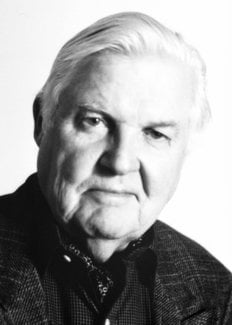Robert Mundell
Biographical

Since 1974, Robert Mundell (born 1932) has been Professor of Economics at Columbia University in New York. After studying at M.I.T. and the London School of Economics, he received his Ph.D. from M.I.T. in 1956, and was the Post-Doctoral Fellow in Political Economy at the University of Chicago in 1956-57. He taught at Stanford University and The Johns Hopkins Bologna Center of Advanced International Studies before joining the staff of the International Monetary Fund in 1961. From 1966 to 1971 he was a Professor of Economics at the University of Chicago and Editor of the journal of Political Economy; and from 1965 to 1975, he was (summer) Professor of International Economics at the Graduate Institute of International Studies in Geneva, Switzerland. For 1997-98 he was the AGIP Professor of Economics at the Johns Hopkins Bologna Center of the Paul H. Nitze School of Advanced International Studies.
Professor Mundell has been an adviser to a number of international agencies and organizations including the United Nations, the IMF, the World Bank, the European Commission, and several governments in Latin America and Europe, the Federal Reserve Board, the US Treasury and the Government of Canada. In 1970, he was a consultant to the Monetary Committee of the European Economic Commission, and in 1972-73 a member of its Study Group on Economic and Monetary Union in Europe¨. He was a member of the Bellagio-Princeton Study Group on International Monetary Reform from 1964 to 1978, and Chairman of the Santa Colomba Conferences on International Monetary Reform between 1971 and 1987.
The author of numerous works and articles on economic theory of international economics, he prepared one of the first plans for a common currency in Europe and is known as the father of the theory of optimum currency areas. He was a pioneer of the theory of the monetary and fiscal policy mix, the theory of inflation and interest and growth, the monetary approach to the balance of payments, and the co-founder of supply-side economics. He has also written extensively on the history of the international monetary system.
Mundell’s writings include over a hundred articles in the scientific journals and the following books: The International Monetary System: Conflict and Reform (1965); Man and Economics and International Economics (1968); Monetary Theory: Interest, Inflation and Growth in the World Economy 1971; and co-edited A Monetary Agenda for the World Economy (1983); Global Disequilibrium (1990); Debts, Deficits and Economic Performance (1991); Building the New Europe (1992); Inflation and Growth in China (1996).
Professor Mundell presented the Frank Graham Memorial Lecture at Princeton University in 1965, the Marshall Lectures at Cambridge University in 1974, and the Ohlin Lectures in 1998. He was the first Rockefeller Research Professor of International Economics at the Brookings Institution in 1964-65, the Ford Foundation Research Professor of Economics at the University of Chicago in 1965-66, the Annenberg Professor of Communications at the University of Southern California in 1980, the Repap Professor of Economics at McGill University in 1989-90, the Richard Fox Professor of Economics at the University of Pennsylvania in 1990-91, and the Agip Professor of Economics at the Bologna Center in 1997-98. He received a Guggenheim Prize in 1971, the Jacques Rueff Medal and Prize in 1983, the Docteur Honoris Causa from the University of Paris in 1992, an Honorary Professorship at Renmin University in China in 1995, the Distinguished Fellow Award from the American Economic Association in 1997, and was made a fellow of the American Academy of Arts and Sciences in October 1998.
This autobiography/biography was written at the time of the award and later published in the book series Les Prix Nobel/ Nobel Lectures/The Nobel Prizes. The information is sometimes updated with an addendum submitted by the Laureate.
Robert A. Mundell died on 4 April 2021.
Nobel Prizes and laureates
See them all presented here.
